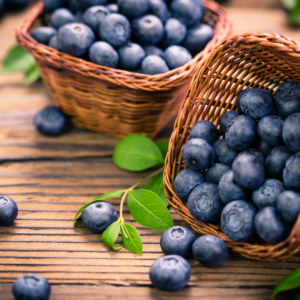
24 Apr 2023 Antioxidants for Your Horse
 High quality horse nutrition is a vital aspect of horse care, especially for athletes! A balanced diet provides the necessary nutrients for the horse to function properly, prevent disease, and maintain optimal health. One important aspect of horse nutrition is the inclusion of antioxidants in their diet.
High quality horse nutrition is a vital aspect of horse care, especially for athletes! A balanced diet provides the necessary nutrients for the horse to function properly, prevent disease, and maintain optimal health. One important aspect of horse nutrition is the inclusion of antioxidants in their diet.
Antioxidants are substances that prevent or reduce oxidative stress in the body. Oxidative stress is caused by free radicals, which are unstable molecules that can damage cells and tissues. Feeding horses a diet rich in antioxidants can prevent oxidative stress and provide numerous health benefits.
Why Antioxidants are Important to Horses
Antioxidants play a crucial role in maintaining the health of horses. They help to support the immune system and prevent and reduce inflammation in your horse’s body – vital for competition horses, or horses with a history of swelling or stocking up, metabolic disease, or inflammatory disease. It also promotes healthy skin and hair. Horses that participate in intense physical activity, such as dressage or eventing, are particularly susceptible to oxidative stress. The production of free radicals increases during exercise, and a diet rich in antioxidants can help combat this stress.
Antioxidants also play a role in preventing certain diseases, including cancer. For example, studies have shown that horses with low levels of vitamin E, a powerful antioxidant, are more susceptible to neurological diseases such as equine motor neuron disease and equine degenerative myeloencephalopathy. Additionally, antioxidants may help reduce the risk of certain types of cancer.
Risks of Low Antioxidants
A diet deficient in antioxidants can lead to numerous health problems for horses. Without enough antioxidants, the body can become overwhelmed by oxidative stress, leading to inflammation and cellular damage. This can result in a variety of issues, including muscle damage, joint pain, and impaired immune function.
Low levels of antioxidants can also lead to skin and coat problems. Horses with insufficient levels of selenium, for example, may develop dry, scaly skin or a dull coat. These deficiencies can also affect the immune system, making the horse more susceptible to infections and other illnesses.
How to Feed More Antioxidant-Rich Foods
The good news is that there are many natural sources of antioxidants that can be incorporated into a horse’s diet. Some of the best sources include flax/flaxseed, blueberries, carrots, and prickly pear.
Flax and flaxseed are excellent sources of omega-3 fatty acids and lignans, both of which have potent antioxidant properties. These nutrients can help reduce inflammation and support healthy skin and coat. Flax can be added to a horse’s diet in the form of whole seeds, ground seeds, or oil. Here’s one of my favorite flax-based products!
Blueberries are a tasty and nutritious addition to a horse’s diet. They are high in antioxidants such as anthocyanins, which have anti-inflammatory properties. Blueberries can be added to the horse’s feed, or given as a treat.
Prickly pear is a cactus fruit that is rich in antioxidants such as betalains, which have anti-inflammatory and anti-cancer properties. Prickly pear can be added to a horse’s diet in the form of juice or powder, or fed in treat form like this.
Other antioxidant-rich foods that can be added to a horse’s diet include carrots, spinach, and beets. These foods are high in vitamins and minerals that have antioxidant properties.
Why Organic?
When selecting antioxidant-rich foods for your horse, it is important to choose high-quality, organic ingredients. Organic foods are grown without the use of pesticides and other harmful chemicals, which can reduce the nutrient content of the food and potentially harm your horse.
The Bottom Line
In conclusion, feeding your horse a diet rich in antioxidants is essential for maintaining optimal health and preventing disease. Antioxidants help to reduce oxidative stress, support the immune system, and promote healthy skin and coat. A diet deficient in antioxidants can lead to numerous health problems, including inflammation, cellular damage, impaired immune function, and cancers. By incorporating antioxidant-rich foods such as flax, flaxseed, blueberries, and prickly pear, you can help support your horse’s health and wellness through all the work they do.
Check out some antioxidant-rich products here!